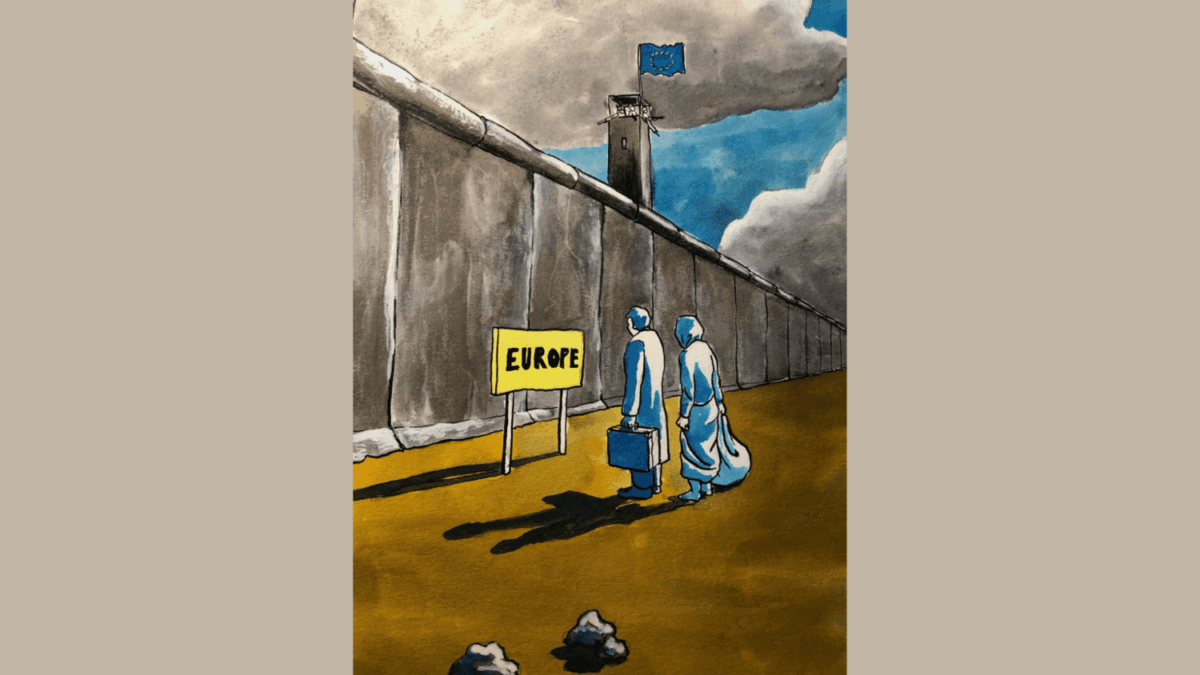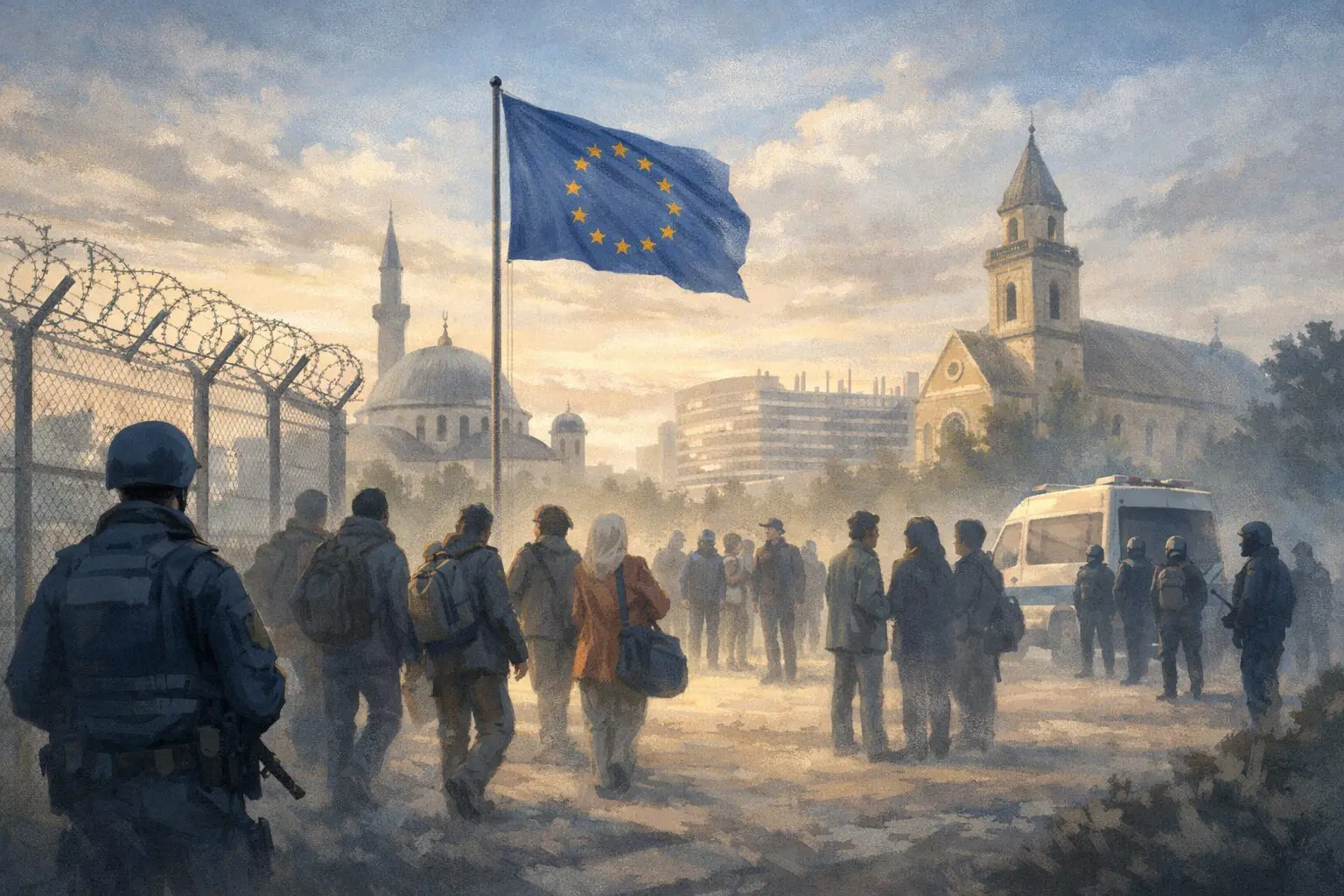Bashy Quraishy
Secretary General – EMISCO -European Muslim Initiative for Social Cohesion – Strasbourg
Chair-Advisory Council-ENAR – European Network Against Racism- Brussels
Thierry Valle
Chair – CAP Liberté de Conscience
In our work with human rights, democracy, and inclusiveness in societies, we have had the possibility to exchange experiences with NGOs from Europe and abroad. In old days, people would normally ask us to share with them our impression, experiences and cooperation with EU institutions, national authorities and local NGO initiatives regarding inter-cultural living and development in the field of inter-ethnic relations.
We were always excited and enthusiastic to tell them of various schemes and plans of actions that were being utilised all over Europe so that its inhabitants could live their lives as they wish but at the same time accept and respect fellow human beings.
But in recent years, the nature of their questions and our answers have changed. Now, the first question is: What is happening to European values or why far right political parties and movements are becoming so powerful. They also ask; why political extremism has been dealt with.
Since, in this age and time of the social media, people have become use to News flashes, Breaking News, and fast exchange of information. So, nothing is hidden from them. This situation does annoy and disturb us, but we are passionate believer of transparency, so we try to explain the situation as best as we can.
This entails that being European, we also ask ourselves, the same questions, other are asking. To gauge the far right upward trend, we can just look at the EU Parliament’s election that were held from 6-9 June 2024.
The Fallout of European Elections
Hundreds of millions of Europeans have voted to elect 720 Members of the European Parliament, and Italy’s leader Giorgia Meloni has cemented her role as a key Brussels power broker with an estimated 28% of the vote. Meanwhile, Macron’s Renew party suffered a stinging defeat in the European elections, securing just 15.2% of the votes to the far-right National Rally’s 31.5%.. French President Emmanuel Macron performed so badly he was pushed to dissolve parliament and call snap elections. Macron retorted in his address that “the rise of the nationalists and demagogues is a threat not only to our nation but also to our Europe and to France’s place in Europe and in the world”.
The far-right FPÖ also topped the poll in Austria, far-right Alternative for Germany (AfD) came in third, Geert Wilders’ right-wing PVV party scooped six seats and in many other countries, the situation is not very different.
Mainstream parties secured a slim majority during European Union parliamentary elections but far-right groups made the most noteworthy gains in the bloc’s legislative body. “The center is holding, but it is also true that the extremes on the left and on the right have gained support,” European Commission President Ursula von der Leyen said following the end of Europe’s four-day vote. However, domestically, this will make the European Parliament a springboard for Euroscepticism, weakening the bloc’s liberal-democratic framework.
Far right governments are not that far
The EU parliament’s election point to a development, we have been worrying and speaking against for a long time. It did not happen in one day but is the result of political populism, media misinformation and negative academic discourse regarding asylum laws, refugees’ issue, and minority presence, especially from Muslim countries. Politicians in their public debates directly blamed minorities for societal ills and sidestepped public’s genuine socio-economic problems.
Looking at the European political landscape, we have seen that the extreme right is moving closer and closer to power around European capitals, and in several countries – e.g. Italy, Finland and in Croatia, they have even moved all the way into the government offices. Just like Wilder’s Freedom Party is in the Netherland government after many years of running. The Dutch government formation is the latest example of a trend that has become evident in Europe. According to Claes de Vreese, professor of media and Democracy, University of Amsterdam, Geert Wilders is part of Netherlands’ most far-right government to date, and Wilders will sit and pull the strings as the largest party”.
Right-wing populism expert Hans Kundnani is the author of the book ‘Euro Whiteness’ and is associated with the Chatham House Think Tank. He says that one of the biggest developments in European politics in the last decade has been the normalization of views that used to be extreme in relation to identity, immigration, and Islam, and where the line between the far-wing and centre-right has become more blurred.
While the conservative EU Commission Chairperson, Ursula von der Leyen, has opened up for cooperation with the right parties, four party groups in the EU Parliament have jointly distanced themselves from the right wing. A similar statement came from the European social democracies – with the exception of the Danish one – to exclude the far right in the form of the two right-wing party groups in the EU Parliament, which call themselves ECR and ID. The Danish prime minister, Mette Frederiksen has taken over the strict migration policy and Islamophobic rhetoric of the far right parties.
Seeing the situation on the ground, one can see that it is becoming more and more difficult to maintain a total exclusion of the far right on a European level. Some of the parties will, just as we saw in the Netherlands, suddenly find themselves in a situation where the only way forward is to cooperate with the extreme right.
Of course, the outcome of the European Parliament elections would play a role in EU’s policy decisions, but in the end, the member states are more important than both the parliament and the commission. The takeover of the governments by the extreme right, as we see in many EU countries, it already has draged EU in that direction. Meanwhile, democratic institutions and values have faced growing threats in several EU countries, from political violence in Germany, Slovakia and Denmark, to Hungary’s crackdown on free media, mistreatment of minorities and the talk of closing the borders to non-EU by erecting the fences towards the Easter border.
Despite the progress achieved in human rights protection over the last decades, racism, hate crimes and hate speech is rife in Europe and on the rise in many countries. Hate speech, increasingly widespread, especially in the political sphere and on the Internet, is also a reason for concern.
That is why, we urge EU-institutions, parliamentarians, Commissioners, and politicians of the national governments to be aware of the effect of their words on public opinion and should refrain from using any forms of discriminatory, insulting, or aggressive language about groups or categories of people. As racism is a complex phenomenon and entails multiple factors, the battle against it must be fought on multiple fronts. In addition to legal instruments designed to prohibit and punish all expressions of racism, including hate speech, we must fight intolerance using cultural and social instruments. Education and information must play a crucial part in training the public to respect ethnic, cultural and religious diversity. Solidarity with the groups which are victims of racism and targets of hate speech, and between these groups, contributes significantly to countering racism and discrimination in all their forms.
Europe should remain a model of freedom instead of become a Fort Europa.







